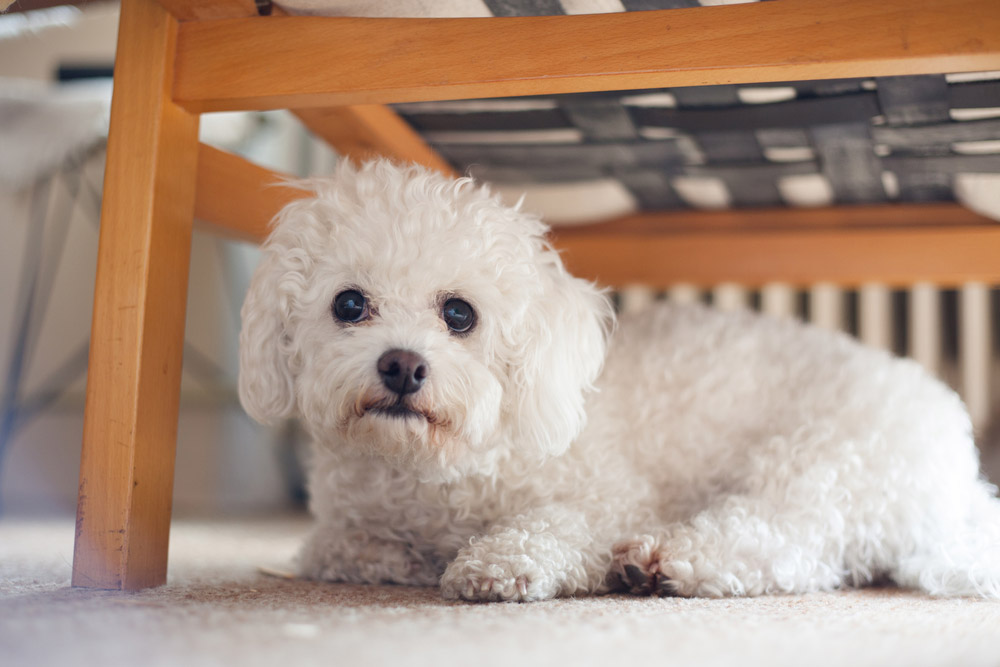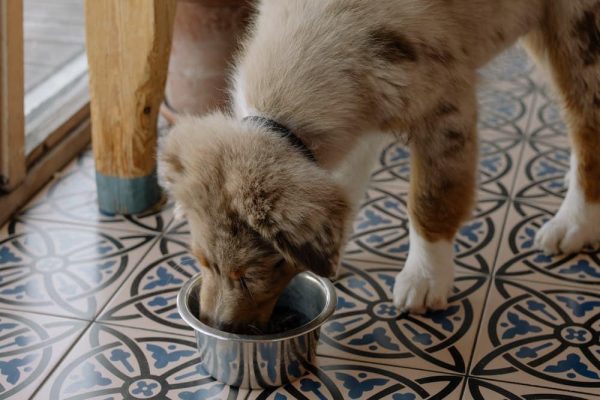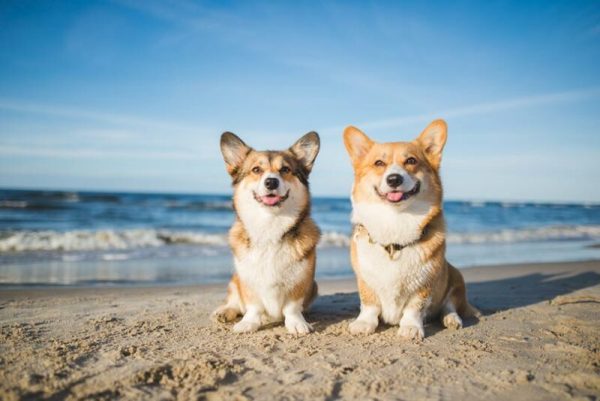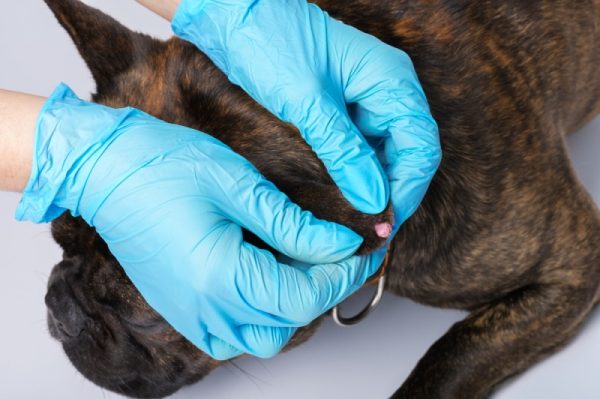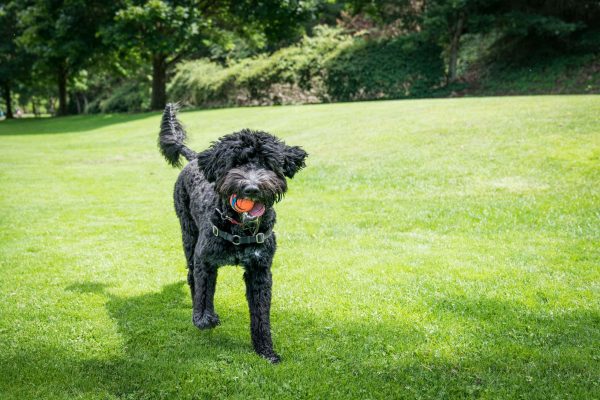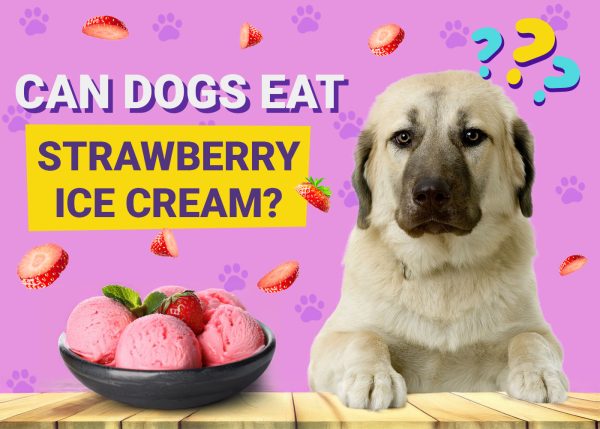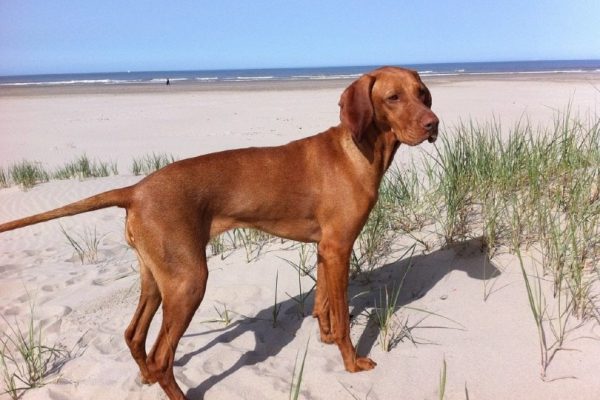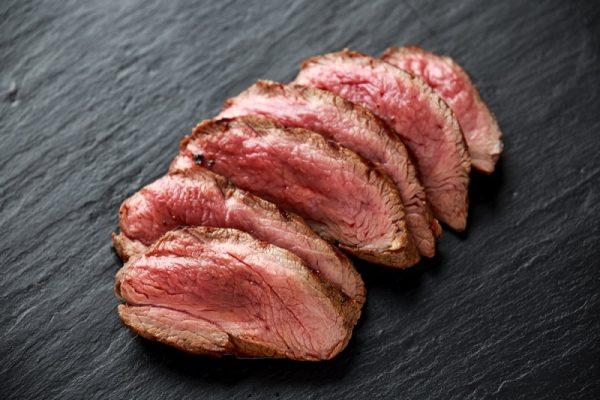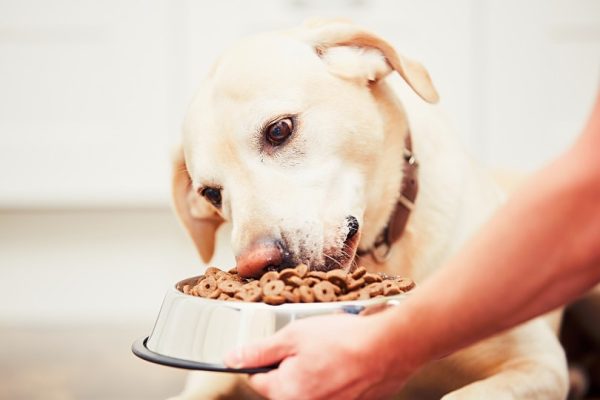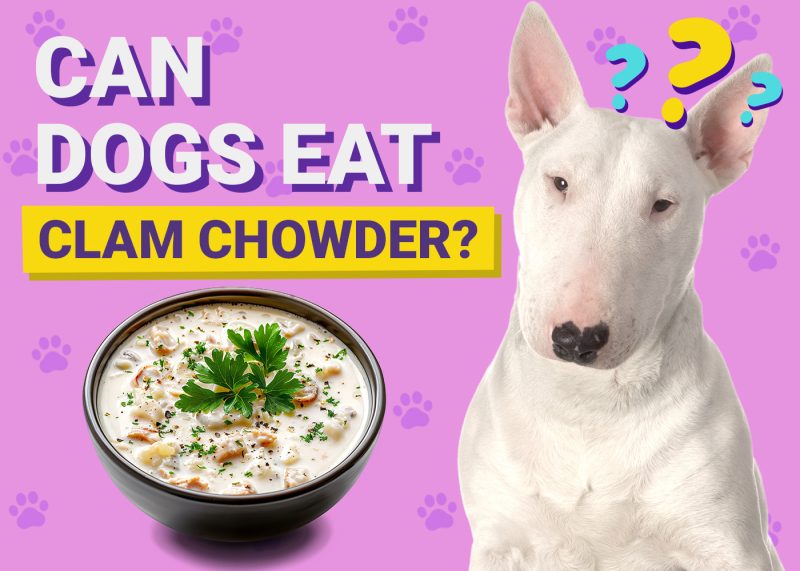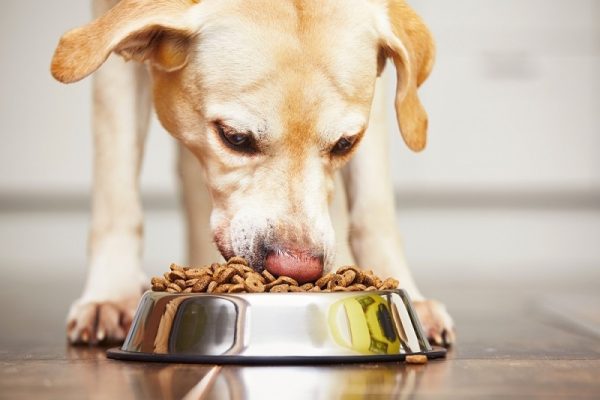Are you an introvert or an extrovert? If you’re an introvert, you know how quickly social batteries can drain and how long it can take to recharge them. If you’re an extrovert, you probably enjoy being around others and meeting new people. Have you ever wondered if canines can be introverted or extroverted?
According to experts, our dogs can absolutely be categorized as introverts or extroverts. But how do you tell if your dog is an introvert? Introverted canines are fairly similar to introverted humans in that they prefer social interaction with just one or two people or dogs, and they may become anxious in new situations. If your pup is more of an introvert than an extrovert, you’ll be able to tell with the ten ways below.

The 10 Ways to Tell If Your Dog Is an Introvert
1. Becomes overwhelmed when put in new situations
When your pup is introduced to a new situation, such as a trip to the dog park, do they seem overwhelmed? If your dog is an introvert, then new situations can produce a lot of anxiety. Your dog may have their ears close to their head, their tail between their legs, or try to hide behind you when introduced to new things. If this sounds like your four-legged friend, it could indicate that your pet is an introvert.
However, if you adopted your dog from a shelter, it could also be a sign that they’ve had something traumatic happen in the past that was similar to their current situation. Becoming overwhelmed in new situations could also signify your pup wasn’t properly socialized when they were young, so they become fearful of new situations and environments.
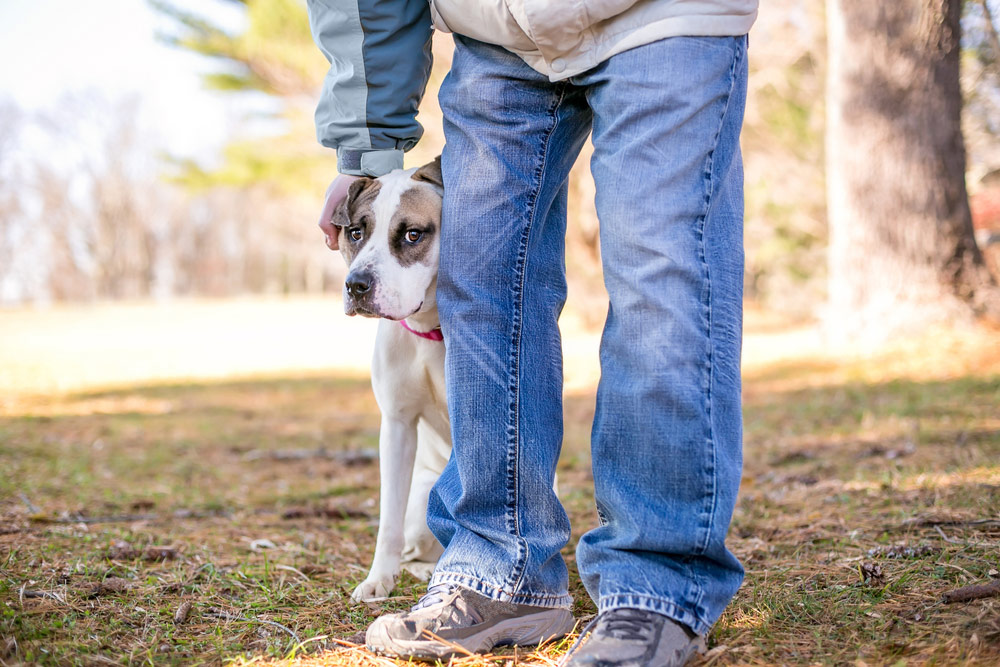
2. Does best with structure and a routine
Introverted canines absolutely thrive on having a routine and structure. Why is that? Because having these things in their life means they always know what to expect. Not having surprises crop up is a huge anxiety reducer for these pups. If your dog seems happier with a strict daily routine and lots of structure, they may be an introvert.
3. Isn’t a fan of large crowds
If you’re an introvert, the thought of dealing with a large crowd may send you into hermit mode. Introverted dogs are no different! Pups on the shyer side aren’t going to be fond of hanging out with lots of people or even other dogs. Being surrounded by lots of noisy stimuli can be overwhelming for them, and being out and about in a large crowd means they don’t have an opportunity to retreat to a quiet, safer area if needed. If your pet seems unhappy in a crowd, they could definitely be introverted.
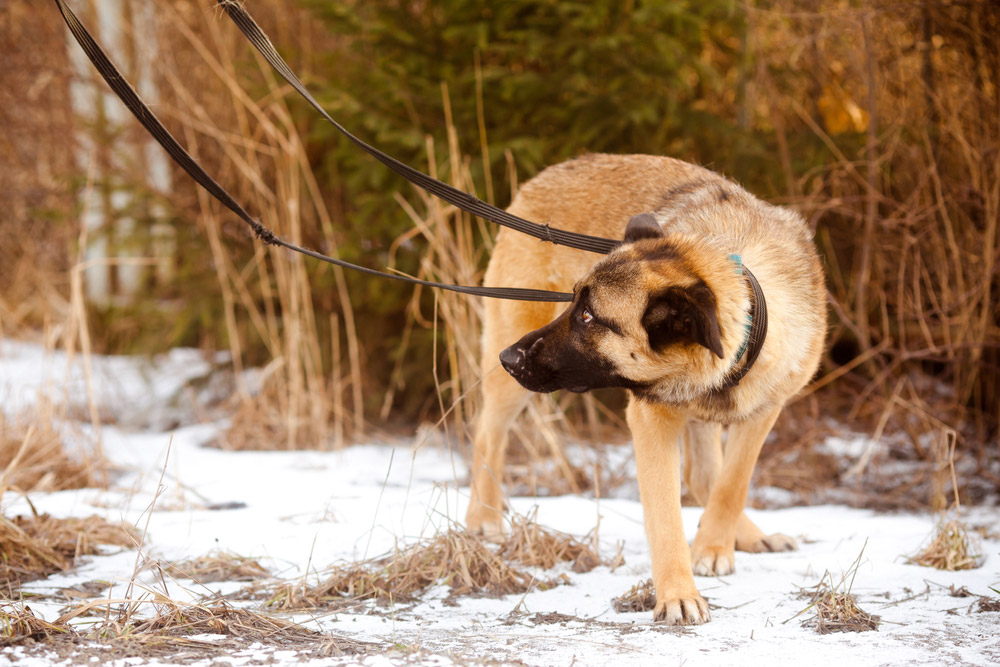
4. Prefers to stick by your side
Dogs who are introverted may prefer to stick close to you when you’re out rather than take an interest in their surroundings. They may also prefer sticking closer to you at home, essentially turning into a Velcro dog. Velcro dogs exhibit clingy behavior by following you everywhere and not letting you out of their sight. Being an introvert isn’t the only thing that can cause this behavior, though. Separation anxiety can also be a cause, as can you being your pup’s favorite person.
5. Doesn’t engage on daily walks
Most dogs taken on walks will engage with their surroundings in some way. They may greet other dogs and people they meet or become highly interested in squirrels or birds they see. But canines who are introverts won’t do this as much; they will be more focused on you and the walk itself. If your pet is more likely to ignore other dogs and their surroundings, they could be introverted.
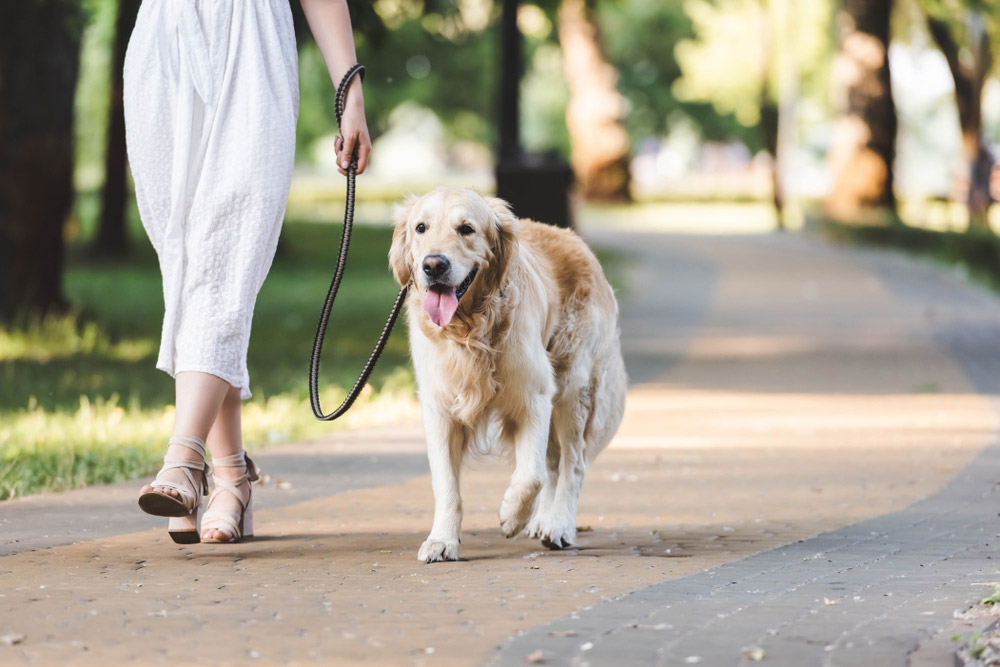
6. Would rather watch than join in on playtime with other dogs
Another behavior introverted dogs are likely to engage in? Not wanting to play with other dogs. A canine on the introverted side will be much happier sitting on the sidelines and watching other dogs play rather than joining in. If you’ve taken trips to the dog park and found that your pet has little interest in playing with the dogs they meet but prefers playing with you, on their own, or simply watching everybody else, they may be an introvert.
7. Doesn’t enjoy meeting new people
Have you ever noticed your dog behaving timidly when someone new comes to your house? Have you seen them act standoffish with strangers on the street who want to pet them? Then, your pup probably dislikes meeting new people. One cause for this may be their introverted personality, but lack of socialization or unpleasant previous experiences may also be to blame. This doesn’t mean they don’t enjoy being around people other than you at all, though. You will likely find that your pet has moments where they want lots of attention and affection from the people they know and love.
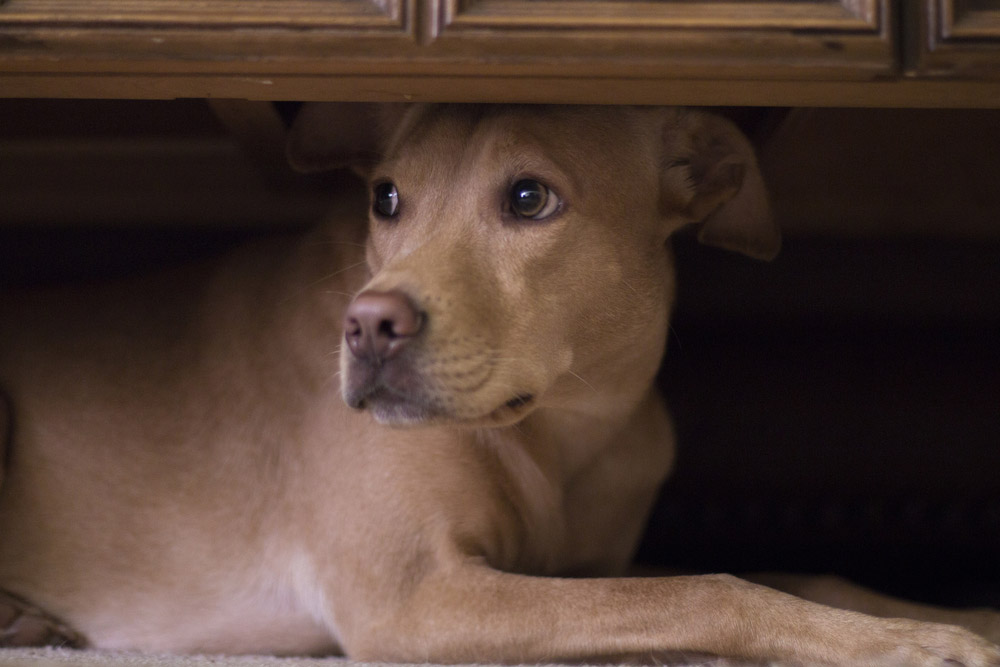
8. Too much time spent with others makes them tired
If you’re an introvert, you know that after spending a night with friends, your batteries are drained (and you’ll need at least two days of alone time before they recharge!). Introverted dogs can be the same way if they spend too much time with other people (and dogs!). It can absolutely wear them out. So, if you and your pup have spent the last couple of hours around others and your pet immediately crashes after, chances are they’re an introvert.
9. Prefers time alone
Introverted pups may prefer to spend much of their time alone. They’ll still want to hang out with you and the rest of their favorite people, but they’ll also need plenty of time to do their own thing in their own space. If this sounds like your dog, give them their space when they indicate they want to be alone. They may wander into another room for a nap or just head to a quiet spot in the room they’re already in.
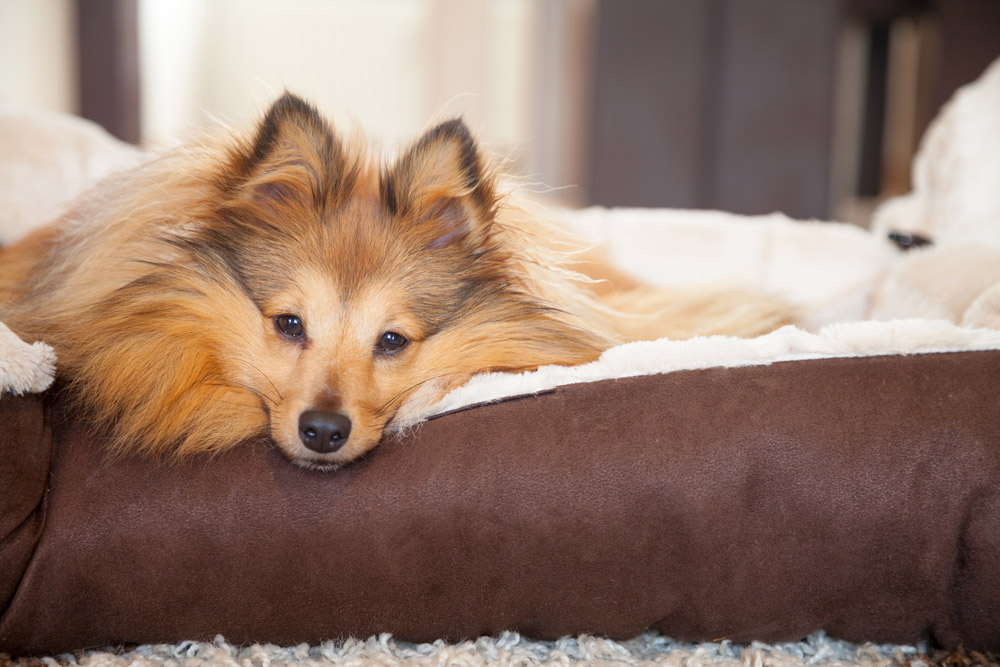
10. Dislikes changes to their daily routine
We already mentioned that canines who are introverts tend to do well with a daily routine because it means they don’t have to deal with any surprises. So, it makes sense that introverted dogs will greatly dislike any changes to that routine. See what happens the next time you have to change the time you usually walk your pup; do they seem overwhelmed, anxious, or upset? Then, you might have an introvert on your hands!

Can I Help My Introverted Dog Be More Confident?
While being an introvert is fine, you may want to help your pup become a bit more confident in their interactions with others. These tips can help your dog become a little less shy when they’re out and about.
- Only use positive reinforcement during training. Positive reinforcement during training should be used with all canines, but it’s particularly useful for dogs who are introverts, as it can give them a confidence boost that is sorely needed. Introverted dogs are thought to be more sensitive to punishment than extroverted dogs so be kind and compassionate in your training methods.
- Step in for your pup when needed. For example, if you know your dog doesn’t want strangers to pet them, step up and let people know that doing so isn’t okay. If you aren’t comfortable saying, “Please don’t pet them,” you can pop a bright colored collar and lead on your dog to indicate “anxious dog, please give me space.”
- Sneak in play training. You can train your pup by playing confidence games with them, and all they’ll know is that they’re having fun!
- Live and let live! If your pup isn’t unhappy and their introverted behavior doesn’t interfere with everyday life, let them be. Your dog doesn’t have to be outgoing to have a happy life.
- Consider a behaviorist or professional trainer. If your dog’s introverted ways are interfering with their quality of life, it might be time to call in the professionals. A behaviorist, professional trainer or veterinarian can help your pet gain confidence.
If you need to speak with a vet but can't get to one, head over to PangoVet. It's our online service where you can talk to a vet online and get the advice you need for your pet — all at an affordable price!


Conclusion
Dogs can be introverts just like people! There’s nothing wrong with being an introvert, but having an introverted dog on your hands may mean making certain accommodations. Dogs on the shyer side may simply never enjoy playdates with other pups or going to the dog park. They might also not want to meet new people often.
If you think your pup would be better off with a boost of confidence, there are ways you can help them out. Use positive reinforcement and confidence games to help train them or advocate for their needs when you’re out and about. Over time, your pet should gain some confidence when it comes to interacting with others.
Featured Image Credit: Alzbeta, Shutterstock
